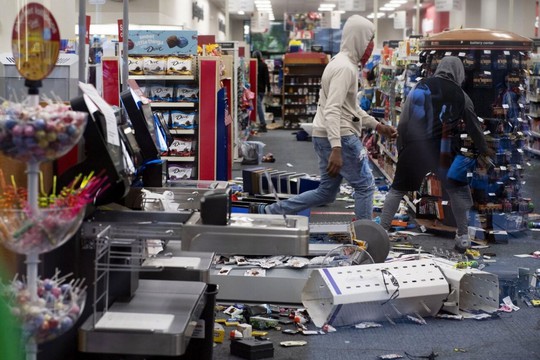Retail theft is now said to be responsible for $45 billion in annual losses in the U.S., according to one trade association, a figure whose recent growth reflects the disruptions of the pandemic era and the rise of online retail, which has made it easier to resell stolen items, informs Bloomberg.
Walgreens has blamed organized shoplifting rings for the company’s recent decision to close five of its 53 San Francisco locations, including the one targeted in June, telling the ‘New York Times’ that stores in that city experience retail theft that is “five times our chain average.”
In 2019, about 22% of U.S. larceny-thefts were shoplifting, according to FBI figures, compared to just 13% in 2000. Shoplifting seems to be largely untethered to overall crime trends, according to Rachel Shteir, the head of dramaturgy at DePaul University, author of the 2011 book “The Steal: A Cultural History of Shoplifting”. It’s also a remarkably common form of lawbreaking: A large 2001 study found that more than 10% of respondents had shoplifted.
“Shoplifting has been a sin, a crime, a confession of sexual repression, a howl of grief, a political yelp, a sign of depression, a badge of identity, and a back door to the American Dream,” Shteir wrote. “The act mirrors our collective identity, reflects our shifting moral code, and demonstrates the power that consumption holds over our psyches.”
Something fascinating about shoplifting is that it seems to attract all ages and classes. There are the teen shoplifters going through a rebellious phase, and the troubled, thrill-seeking celebrity cases. And then there are crimes of genuine economic desperation. Can you explain how society treats shoplifters differently, depending on age, class, and race.
Stores are very reluctant to give any accurate information or participate in any peer-reviewed type of studies where you would get an actual sense of how much shoplifting was going on. Because of that, the studies on shoplifting are very few. And stores just don’t feel that it’s in their interest. They are extremely stingy with any kind of information. And retailers feel like they have bigger problems.
…Now we can see how the US professor justifies ‘shoplifting’ and talks about the ‘mental causes of this phenomenon’. So shoplifting is ‘the American way to freedom’? Well-well-well…
read more in our Telegram-channel https://t.me/The_International_Affairs

 11:26 17.05.2023 •
11:26 17.05.2023 •























